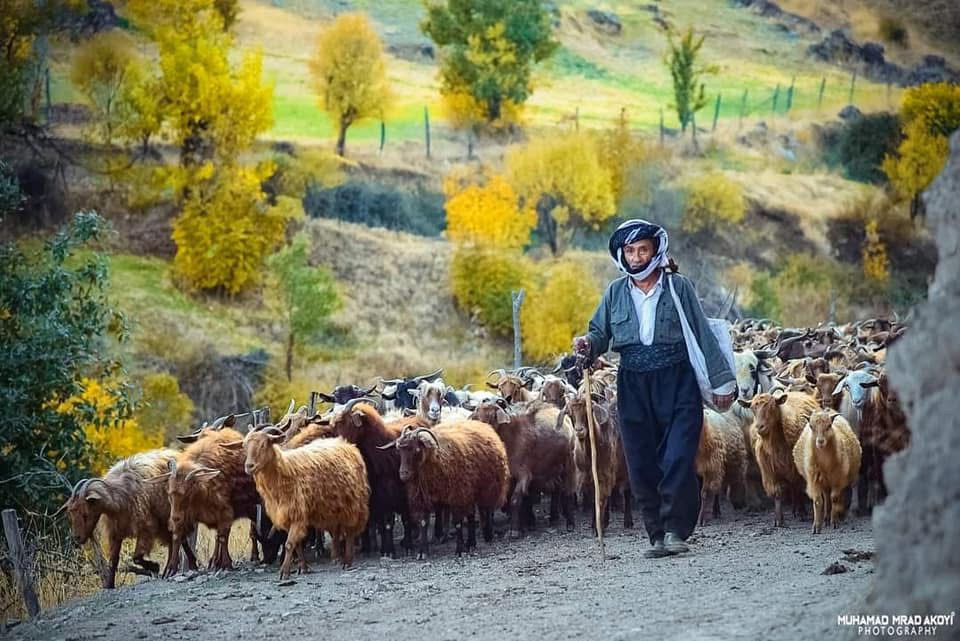Shepherding is an ancient and important part of life in Kurdistan, where it has been practiced for thousands of years. A shepherd, or shwan in Kurdish, is responsible for taking care of a flock of sheep—feeding them, protecting them, and guiding them. This job is not only a way of making a living, but also a deeply rooted tradition that connects the people of Kurdistan to their history and culture.
For many generations, shepherding was the main way for Kurdish families to survive. It provided food through meat and milk, as well as wool for clothing. Shepherding was a vital part of village life, and it allowed families to live off the land. This tradition was passed down from parents to children, with each new generation learning the skills needed to care for their sheep and other animals.
In addition to its practical importance, shepherding holds a special place in the religious and cultural beliefs of many Kurdish people. In Islam, several prophets, including Prophet Musa (Moses) and Prophet Muhammad, were shepherds when they were young. Because of this, many see shepherding as a noble and honorable profession.
Shepherding is one of the oldest jobs in the world, dating back over 5,000 years. It began in Asia Minor, where people first domesticated sheep for their milk, meat, and wool. Over time, the practice spread across the world. In Kurdistan, shepherds often care for not just sheep, but also goats, cattle, and chickens. This helps them provide a variety of resources for their families.
Being a shepherd in Kurdistan comes with challenges. Shepherds must protect their animals from predators like wolves, wild dogs, and even human threats. They often live in remote areas, spending long hours in the countryside with their flocks. Though this way of life can be difficult, it is also deeply connected to the land and nature.
Even though life has changed in many ways due to modern technology and urbanization, shepherding continues to be an important part of life in Kurdistan. It shows how people in the region remain strong and connected to their heritage. Shepherds today still play a key role in keeping the tradition alive, passing it down to the next generation and preserving the values of hard work, resilience, and respect for nature.

